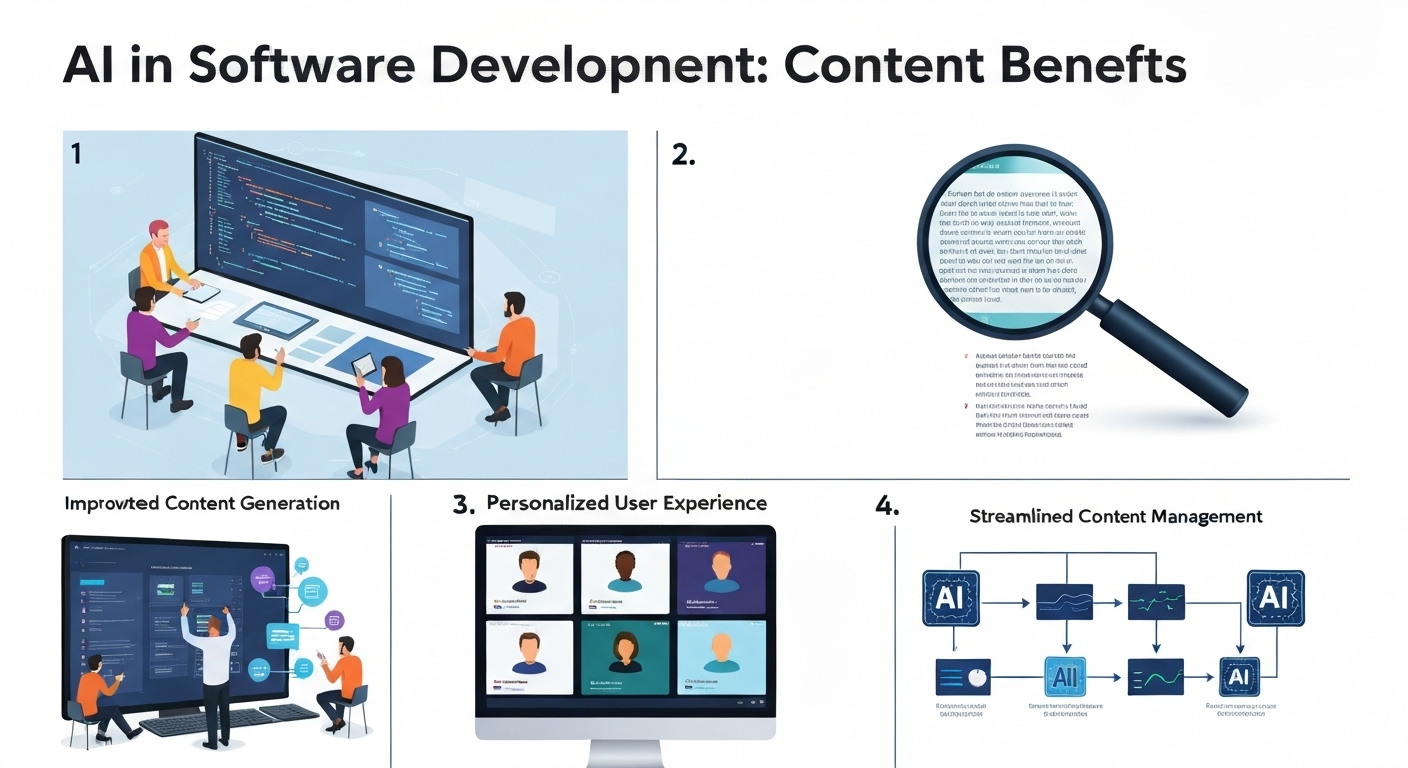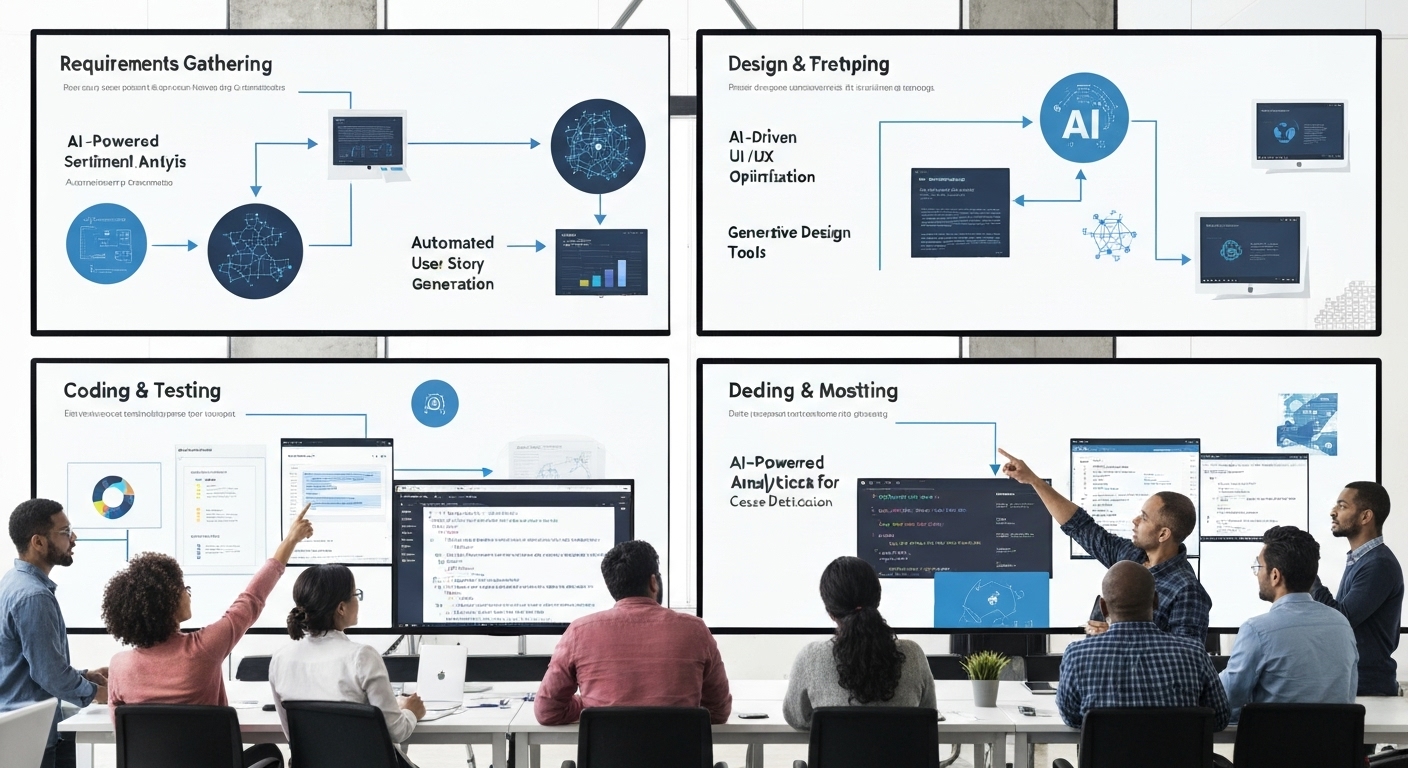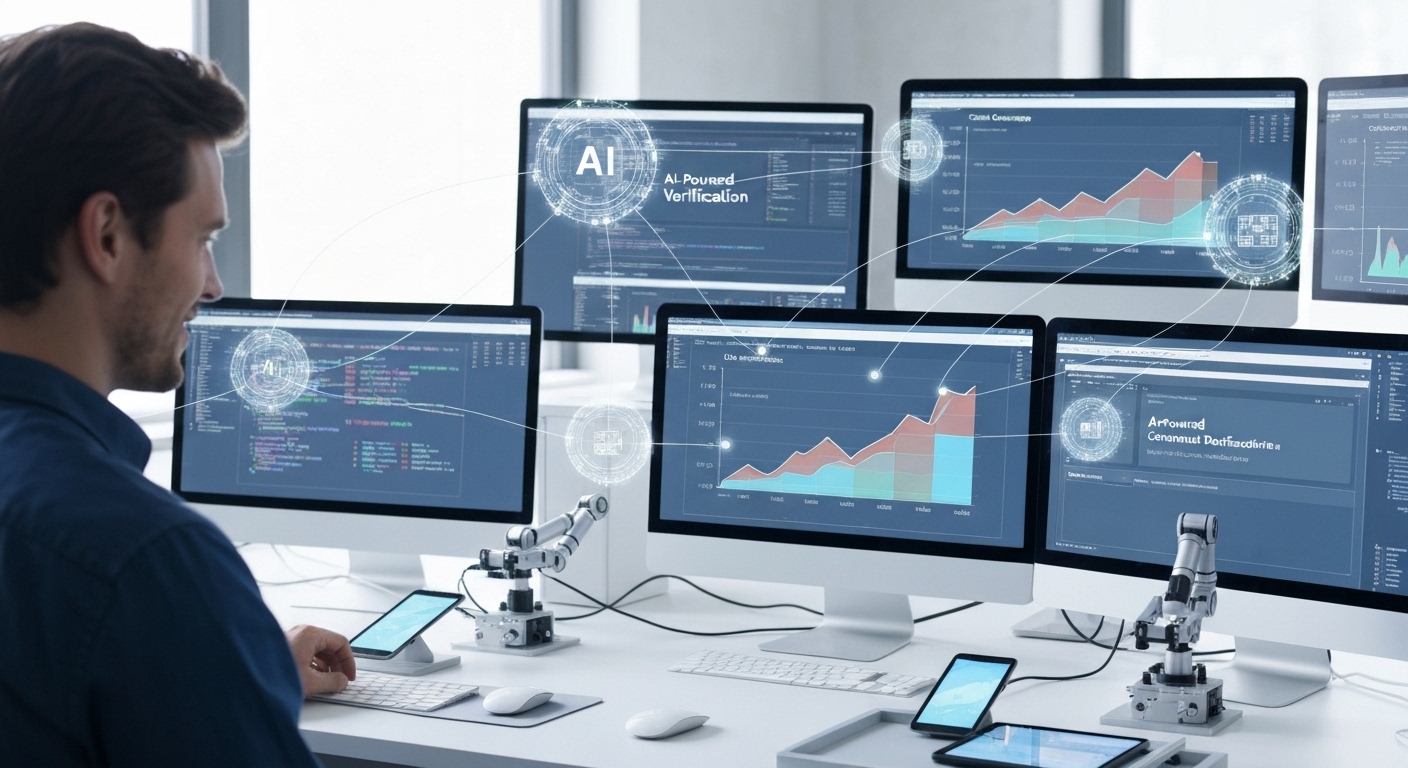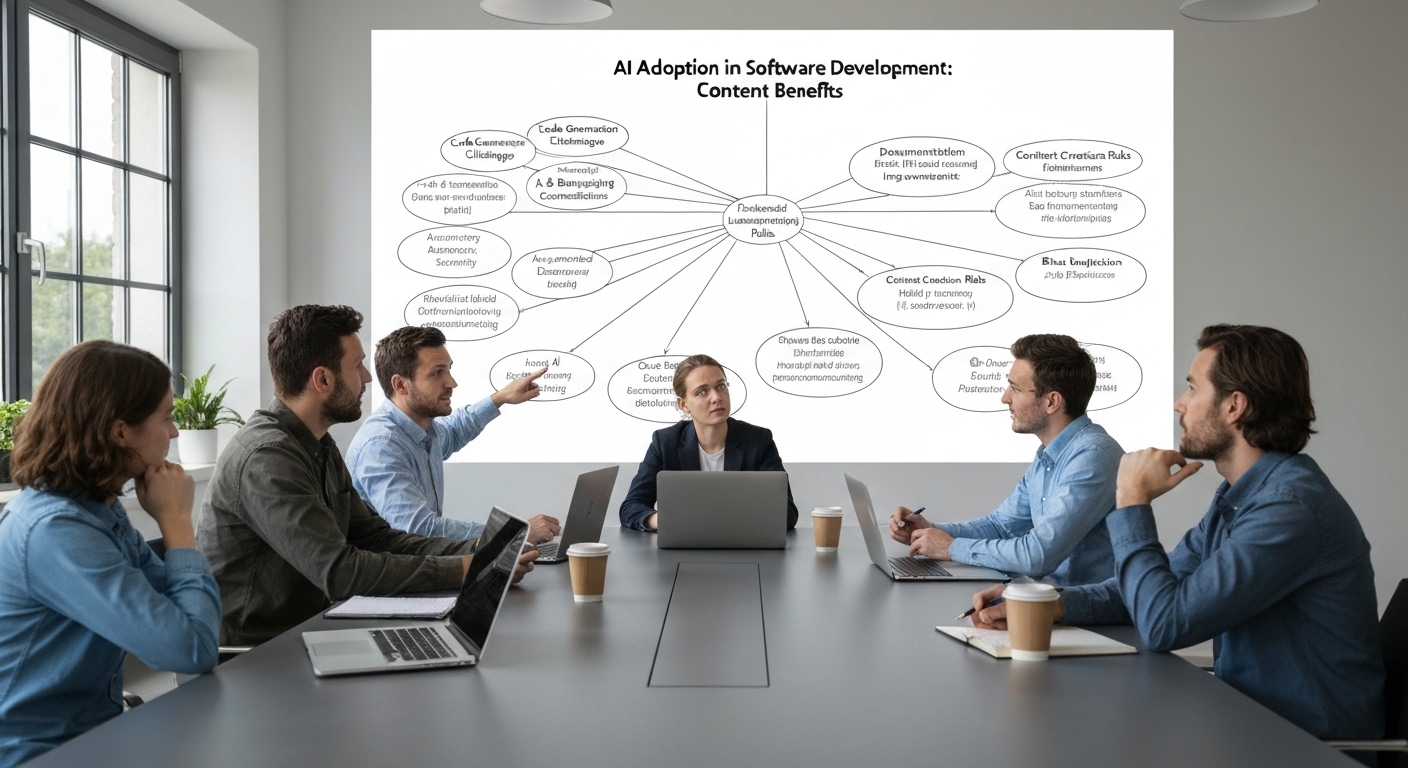Unlocking Efficiency : Exploring the Benefits of AI in Software Development
Benefits of AI in Software Development are transforming the software industry, offering unprecedented opportunities to enhance efficiency, quality, and innovation. From automating mundane tasks to providing intelligent insights, AI is becoming an indispensable tool for developers.

The Rise of AI Powered Software Development
AI powered software development is no longer a futuristic concept. It’s a present-day reality. With advancements in machine learning and natural language processing, AI is actively shaping the software development lifecycle. We’re seeing AI assisting in various phases, from initial design to deployment and maintenance.

Understanding the Core Benefits
The core benefits of integrating AI into software development are multifaceted. These include increased speed, reduced costs, improved accuracy, and enhanced creativity. Let’s delve into each of these aspects in more detail.
Enhanced Efficiency and Accelerated Software Delivery
One of the most significant benefits of AI in software development is its ability to accelerate the development process. AI-driven tools can automate repetitive tasks, freeing up developers to focus on more complex and creative aspects of their work. This leads to faster software delivery and quicker time-to-market.
AI Code Generation: Automating the Coding Process
AI code generation tools are revolutionizing how developers write code. These tools can automatically generate code snippets, entire functions, and even complete applications based on natural language descriptions or existing codebases. This dramatically reduces the amount of time spent on manual coding.
Intelligent Automation in Software Development: Streamlining Workflows
Intelligent automation leverages AI to streamline workflows and automate various processes within the software development lifecycle. This includes automating tasks such as code reviews, bug detection, and deployment.
Improved Software Quality and Reduced Errors
AI can significantly improve the quality of software by detecting and preventing errors. AI-powered testing tools can automatically identify bugs, vulnerabilities, and performance issues, ensuring that the final product is robust and reliable.

AI Software Testing: Identifying Bugs and Vulnerabilities
AI software testing automates the testing process, making it faster and more efficient. AI-powered testing tools can identify a wider range of bugs and vulnerabilities than traditional testing methods, leading to higher-quality software.
Predictive Analysis in Software Development: Preventing Future Issues
Predictive analysis uses AI to identify potential issues before they arise. By analyzing historical data, AI can predict which parts of the codebase are most likely to contain bugs or vulnerabilities, allowing developers to proactively address these issues.
Reduced Costs and Increased ROI
By automating tasks and improving efficiency, AI can significantly reduce the costs associated with software development. This leads to a higher return on investment (ROI) for software projects.

Optimizing Resource Allocation with AI
AI can help optimize resource allocation by identifying areas where resources are being underutilized or wasted. This allows project managers to allocate resources more efficiently, reducing costs and improving productivity.
Minimizing Rework and Bug Fixes
By detecting and preventing bugs early in the development process, AI can minimize the amount of rework required. This reduces the costs associated with bug fixes and ensures that the project stays on schedule.
Enhanced Creativity and Innovation
While AI excels at automating tasks, it can also enhance creativity and innovation. By freeing up developers from mundane tasks, AI allows them to focus on more creative and strategic aspects of their work.
AI Driven Project Management: Improving Decision-Making
AI driven project management tools can help project managers make better decisions by providing data-driven insights. These tools can analyze project data to identify potential risks, optimize schedules, and improve resource allocation.
Generating New Ideas and Solutions with AI
AI can be used to generate new ideas and solutions by analyzing large datasets and identifying patterns that humans might miss. This can lead to breakthroughs in software design and functionality.
The Future of AI in Software Engineering
The future of AI in software engineering is bright. As AI technology continues to evolve, we can expect to see even more sophisticated AI-powered tools that further enhance efficiency, quality, and innovation. The integration of AI will continue to transform how software is developed and maintained.
Addressing Challenges and Concerns
While the benefits of AI in software development are numerous, there are also challenges and concerns that need to be addressed. These include the need for skilled AI professionals, the potential for bias in AI algorithms, and the ethical implications of AI-powered automation.

The Importance of Continuous Learning
As AI technology evolves, it’s important for developers to stay up-to-date on the latest advancements. Continuous learning is essential for leveraging the full potential of AI in software development.
Getting Started with AI in Your Software Development Projects
Implementing AI into your software development processes doesn’t have to be a daunting task. Start with small pilot projects, experiment with different AI tools, and gradually integrate AI into your workflow. Consider leveraging cloud-based AI services for easier access and scalability, for example the services provided by flashs.cloud.
Choosing the Right AI Tools and Technologies
Selecting the right AI tools and technologies is crucial for successful implementation. Consider your specific needs and requirements, and choose tools that are well-suited to your project. Evaluate factors such as ease of use, scalability, and integration capabilities.
To get started, it’s crucial to understand the fundamental NIST standards for AI development.
In conclusion, the benefits of AI in software development are undeniable. From increased efficiency and improved quality to reduced costs and enhanced creativity, AI is transforming the software industry. By embracing AI, developers can unlock new levels of productivity and innovation, creating better software faster.
HOTLINE
+84372 005 899


